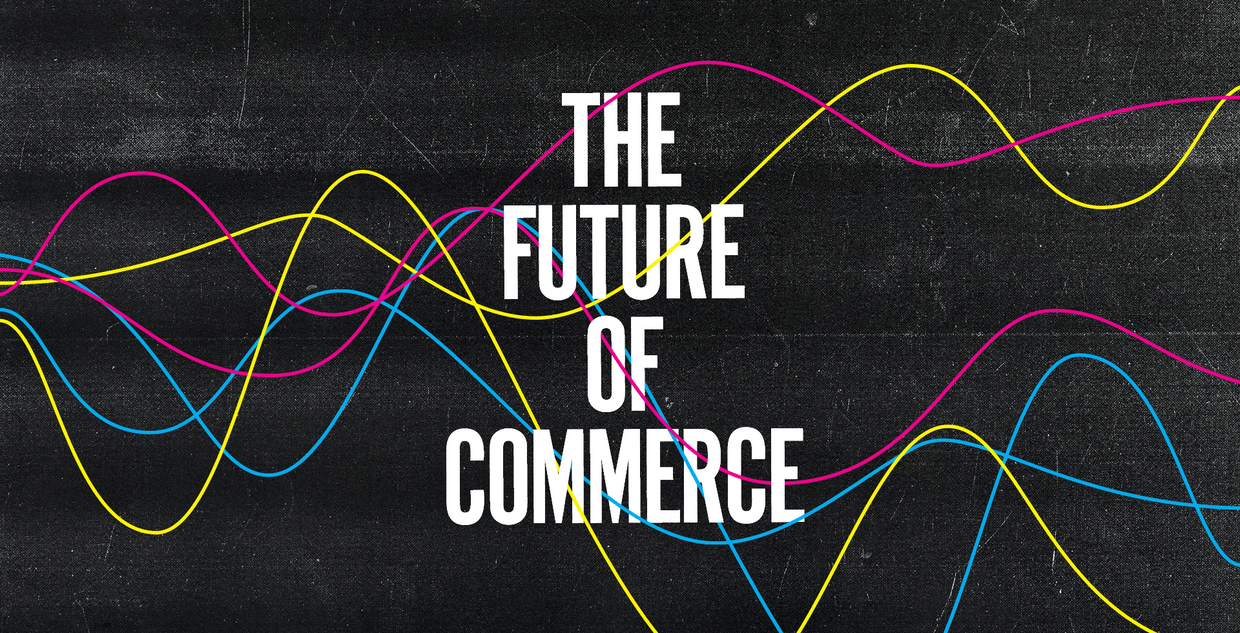


How can brands combat rising acquisition costs? What omnichannel approach will see businesses through the pandemic? Is there a way to balance ongoing supply chain woes with long-term sustainability?
Shopify's The Future of Commerce brings together expert interviews, data analysis, and a global business and consumer survey to reveal what the past two years have taught us about commerce, retail, shipping and logistics—and what’s to come next.
Shopify published their Future of Commerce report and in this blog we cover the key statistics, three key trends and useful recommendations for brands. Read more to discover the trends shaping the year ahead and get practical tips on how to put each trend into action!
One thing that stands out in the report is that the only constant thing in commerce is change. Oh how we can relate to that here at Cake!
Due to the pandemic, businesses have had to deal with more change in the last two years than in the previous two decades. Some of these changes are:
All is not lost! There is some good news. More and more consumers are willing to pay higher prices and wait longer for delivery if they resonate with the brand…
2022 is the year of brand proposition. It’s about the experience. There, we said it.
Shopify also reiterate this in their report, stating that what got brands where they are over the past two years, will not get them where they want to go. Due to advertising uncertainty, brands need to focus on the customer experience to create a meaningful community and increase retention.
Due to Covid restrictions beginning to ease, more people are returning to in-store shopping and want the online and in-person experience to be aligned, so brands can no longer look at the two as working in silo. Customers want to be able to buy online but return in store, or view a product in store and then buy online later.
“The brands that speak to everyone speak to no one. Whether brand differentiation means what the brand stands for, the way the product is made, or the way they engage their audience, consumers are looking for differentiated experiences and brands they can connect to.”
Morgan Brown -VP Growth Marketing, Shopify
Brands who want immediate measurable results tend to undervalue the importance of their brand strategy and prioritise marketing, as it’s a longer term investment.
70% of marketers cutting their budgets will sacrifice brand, while only 13% will reduce performance marketing spend. Conversion rates are important but it’s not the whole picture. Google reports that more than 80% of consumers will conduct their research online before making a purchase decision, so when they come to purchase they already have a brand in mind. Due to this, businesses need a strong brand to earn their place in a consumer’s mind.
Even as regulations make data tracking harder, consumers continue to demand personalised shopping experiences…
There is such a thing as over personalisation
Consumers are more aware than ever before of their privacy and are exercising their right to have privacy, meaning trust is harder to earn. Regulators and technology providers are making it easier for consumers to have a say in how their data is being used, meaning third party cookies will no longer cut it. Brands are moving to first party data to personalise experiences and drive their marketing efforts, but consumers are 3x more likely to abandon carts if they feel there is ‘over-personalisation’ as it feels as though they are being digitally stalked.
Sales through social media channels around the world are expected to nearly triple by 2025 – yikes!
After more than a year of people working from home, users are spending more time than ever scrolling through feeds on social platforms, with the typical user now spending around 15% of their waking life on social media. Crazy thought, eh?
The emergence and continual growth of social commerce is a great opportunity for brands to take back control of their identity on digital channels which has been reduced due to the increase in marketplace purchases which tend to suppress brand identity.
As consumers buy more on these platforms, they will become more ‘shoppable’, but this doesn’t mean spending more on ads as this doesn’t build trust.
Thanks to Shopify for this very comprehensive commerce report. Our key takeaway is that the only constant in commerce is change. It’s something we here at Cake really resonate with as we are committed to staying up to date with the latest trends and innovations in eCommerce, and always strive to deliver the best outcomes for the brands we work with.
Are you considering a move to Shopify? Get in touch with Cake to find out more!